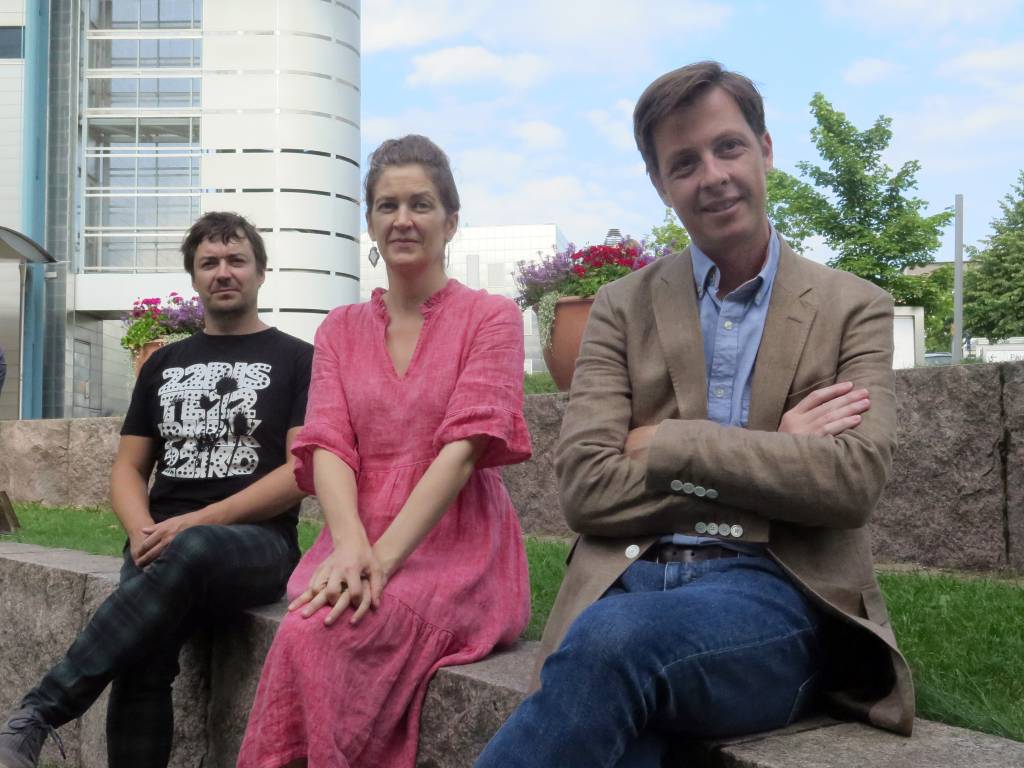
Dr Rob Boddice, Dr Tuomas Laine-Frigren, and Professor Heidi Morrison joined HEX this September. We talked with our new researchers about their background, plans, and expectations.
Senior Research Fellow Rob Boddice has been previously working at Freie Universität Berlin and at the Center for the History of Emotions at the Max Planck Institute for Human Development. Having worked on the history of emotions throughout its explosion phase, the sense that the field had some limitations led him to look for new theoretical and methodological developments, especially concerning the brain-body and its dynamic entanglement with the world. He says that the concept of ‘experience’ seems to offer one potential route.
The Academy of Finland Postdoctoral Researcher Tuomas Laine-Frigren has previously been working on the history of human sciences, mental health, and psychological expertise in 20th-century Europe, as well as on the historical constructions of victimhood, childhood mental trauma, and disability. For him, the history of experience feels like a logical step forward from expert discourses and social constructions of childhood.
Senior Research Fellow Heidi Morrison also sees “experience” as a vital concept for seeking to understand what it means to live in this world as a human being at a certain moment in time.
“The history of experience seeks to engage with sensory perceptions of reality, expanding what counts as history”, Morrison specifies.
In the HEX research programme, Morrison’s main research interest is the lived experience of children and youth in modern and contemporary global history. Her work as an oral historian is driven by the idea that there are a multiplicity of realities that are not always captured in the conventional historical archive; as a historical portraitist she bridges individual agency with social structures to create a whole body-mind-world picture of a person’s life. At HEX, she will be working on several book projects on the topic as well as conduct a new joint project with Tampere University’s medical school on the experiences vs. statistics of children’s health worldwide.
Dr Boddice is also busy completing several book projects. For example, his next monograph, Humane Professions: The Defence of Experimental Medicine, 1876-1914 (in production with Cambridge University Press) frames medical experimentation as a practical act of humanitarianism and shows how this was sold to the general public and incorporated at the level of government policy through mechanisms such as National Insurance.
“My new projects concern scientific and medical knowledge production in the long nineteenth century and the experiential history of placebo, which I am styling a ‘surprising cultural history of the brain’”, he adds.
Dr Laine-Frigren’s new project at HEX concerns the history of displaced children in Europe during the 1940s and 1950s, with a focus on those children who were evacuated to Scandinavian foster families during WWII and travelled back to Finland, sometimes after several years abroad. His research project (“Children on the Move”) studies the readjustment of these ‘immigrants’ in postwar Finland.
“I will ask, for example, how experts and other adults encountered these children. I also try to interpret children’s own coping strategies and what might be called their lived experience.”
All three new HEX members are excited to join the Centre and see great potential in its approach and composition. Dr Laine-Frigren particularly enjoys the open-minded atmosphere and approach. Dr Boddice adds that bringing different theoretical and methodological approaches to bear on a common problem in a collegial way form ideal conditions for the forging of new critical insights and new historiographical practices. For all three, history of experiences also has wider cultural and societal implications. As worded by Dr Morrison, studying the history of experience means that it is a field that is committed to all of us, that is, humanity.
“This means the questions historians of experience ask, and the answers they provide, have the potential to positively change the present and future.”


Comments